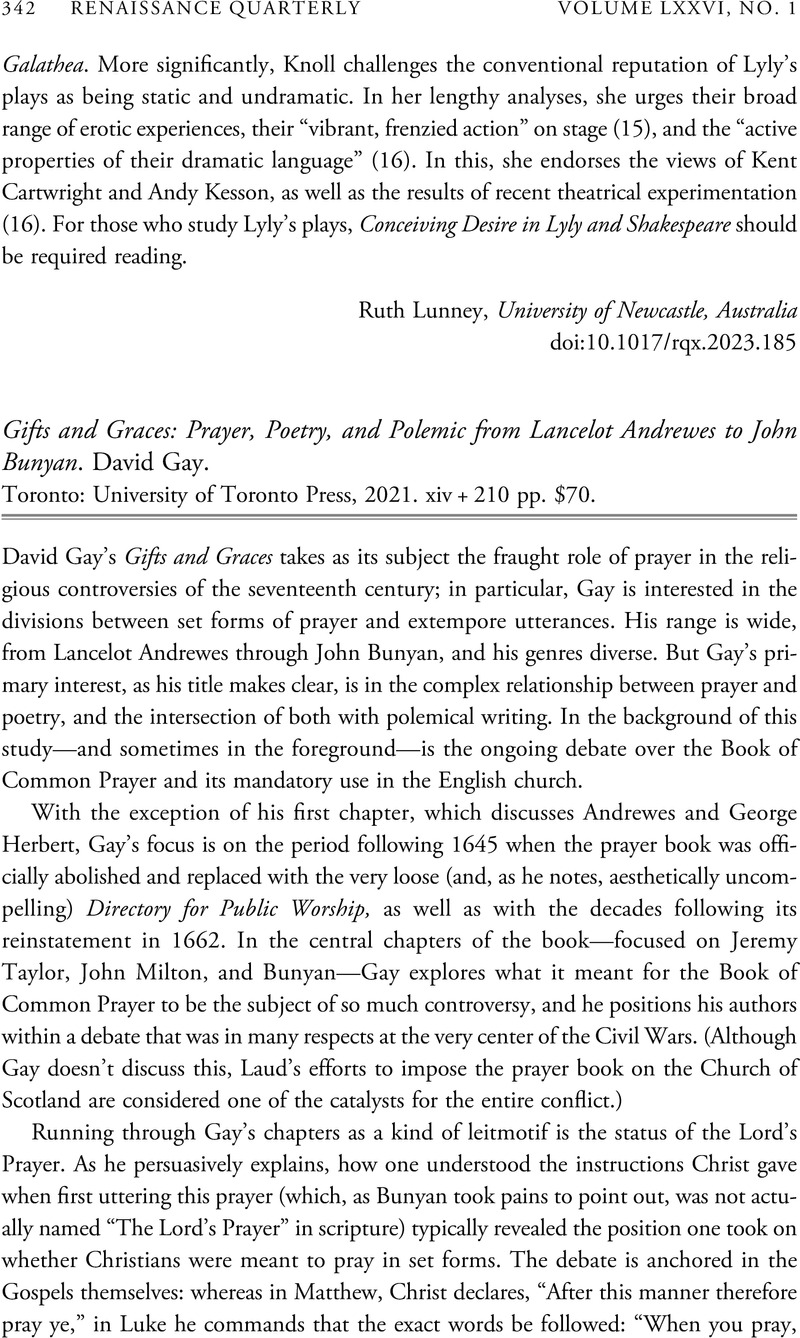No CrossRef data available.
Article contents
Gifts and Graces: Prayer, Poetry, and Polemic from Lancelot Andrewes to John Bunyan. David Gay. Toronto: University of Toronto Press, 2021. xiv + 210 pp. $70.
Review products
Gifts and Graces: Prayer, Poetry, and Polemic from Lancelot Andrewes to John Bunyan. David Gay. Toronto: University of Toronto Press, 2021. xiv + 210 pp. $70.
Published online by Cambridge University Press: 17 April 2023
Abstract
An abstract is not available for this content so a preview has been provided. Please use the Get access link above for information on how to access this content.

- Type
- Review
- Information
- Copyright
- Copyright © The Author(s), 2023. Published by the Renaissance Society of America



